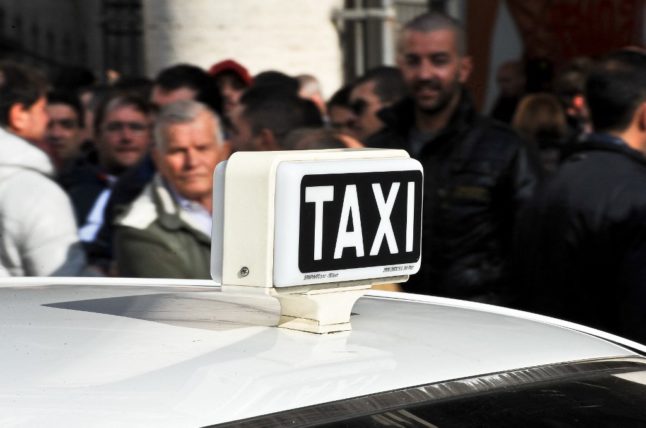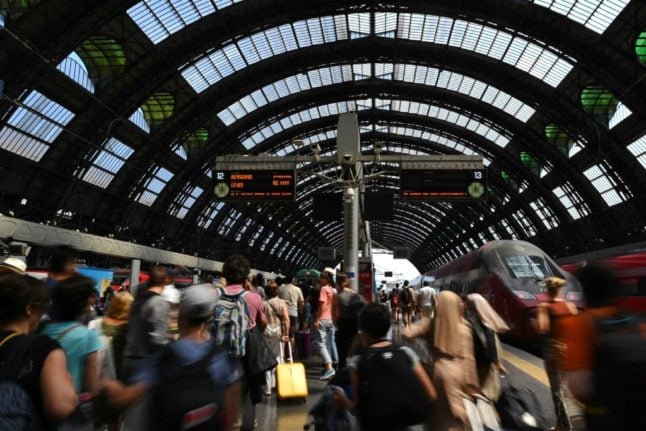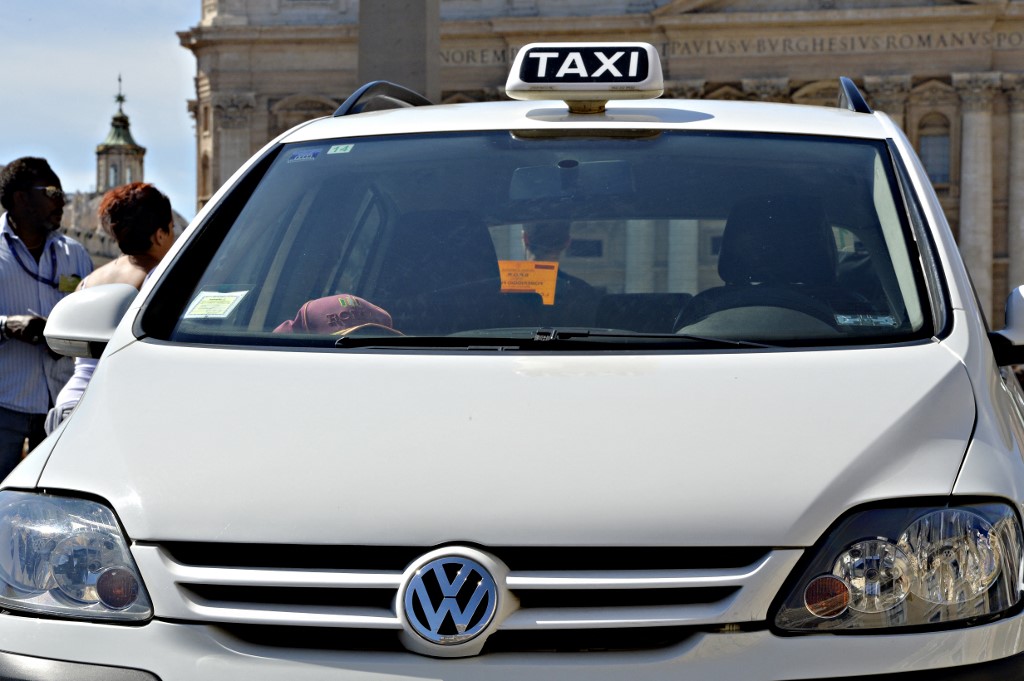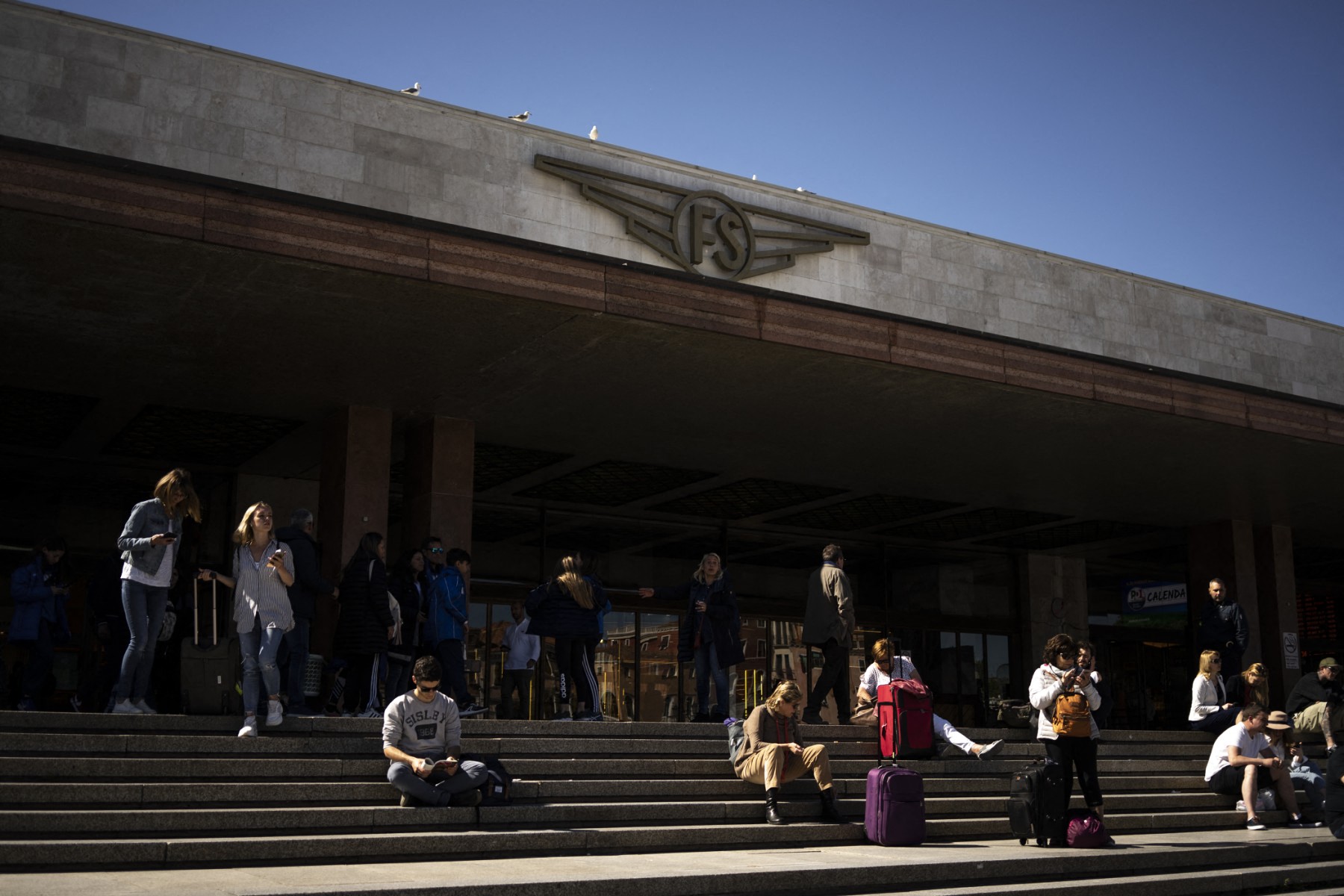A protest in central Rome turned violent on Wednesday as a group of taxi drivers threw flares and smoke bombs at police in the latest of a series of protests against planned deregulation of the industry.
Police sealed off the area surrounding Palazzo Chigi, the office of Italian Prime Minister Mario Draghi, just a few hundred metres from where protestors gathered, news agency Ansa reported.
No arrests or injures were immediately reported.
Italian taxi drivers have been protesting for weeks against a new deregulation bill which they fear will expose the country’s highly regulated and protected taxi industry to unfair competition from online ride-sharing services such as Uber.
Continua a #Roma la protesta dei tassisti: Palazzo Chigi (la residenza ufficiale del Presidente del Consiglio dei Ministri) viene blindato, partono petardi e fumogeni. La polizia è in servizio. pic.twitter.com/GTRZAG8Hgp
— Luigi Basemi (@LBasemi) July 13, 2022
On Tuesday, five taxi drivers chained themselves to the gates in front of Palazzo Chigi, demanding “clarity and transparency” from the government over the much-contested bill.
Protests were held in cities around Italy this week, including Turin, where around 200 protesters were occupying Vittorio Veneto Square with their vehicles.
Wednesday’s clashes were not the first time such protests had turned violent: scuffles broke out and smoke bombs were thrown near the prime minister’s office last week during a protest by taxi drivers over the same issue.
Tensions were heightened this week following reports on the ‘Uber Files’: an investigation by international media into leaked documents which allegedly show that the start-up worked around laws in various countries and used aggressive lobbying tactics to curry favour with governments.
In a joint note released earlier on Wednesday, Drivers’ unions accused the Italian government of being “blind to the scandals and malpractice that have emerged in the past few days” in relation to Uber’s conduct in different European countries.
While Uber does exist in Italy, it currently operates on a limited basis in the biggest cities only and the Uber Black service was banned in the country up until 2017.
But the company is now set for major expansion after finalising a deal in May to integrate its app with Italy’s largest taxi dispatcher, IT Taxi.
The move is set to make the app available in over 80 more towns and cities in Italy.





 Please whitelist us to continue reading.
Please whitelist us to continue reading.
Member comments